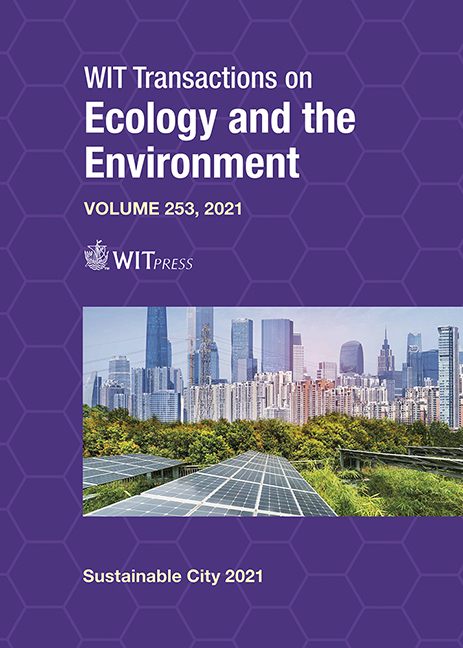URBAN METABOLISM AS AN APPROACH TO ACHIEVE RESOURCE EFFICIENT COMMUNITIES: A CASE STUDY OF AL SHAKHLOBA, BURULLUS LAKE, KAFR EL SHEIKH, EGYPT
Price
Free (open access)
Transaction
Volume
253
Pages
12
Page Range
253 - 264
Published
2021
Size
2,016 kb
Paper DOI
10.2495/SC210221
Copyright
Author(s)
ALSHAIMAA ELABASY, MOHAMED IBRAHIM
Abstract
Efficient use of natural resources has become increasingly important due to the pressure resulting from population growth, increased demand for resources, and globally unprecedented waste generation habits. Therefore, exploring the flows of urban resources (i.e. water, energy, land and materials) could help one to reach a better understanding of the complex processes of entry and exit of such resources. This study analyzes the inflows and outflows of one of the resources – namely energy – within the Egyptian community “Al Shakhloba village”. This study aims to formulate a model that simulates and optimizes the resources flows in communities by means of the urban metabolism approach; study human interaction with energy use in one of the small Egyptian communities through the use of interview questionnaire; and identify the current state for the energy flow. The main conclusions and recommendations of this case study can improve energy resources management in Shakhloba village, in order to convey a vision to decision-makers about how to manage energy resources within the scope of achieving sustainable development. In addition, it shall contribute to sustaining a more efficient use of energy resources.
Keywords
urban metabolism, energy, energy consumption, energy efficiency, resource efficiency, Shakhloba village, Egypt





